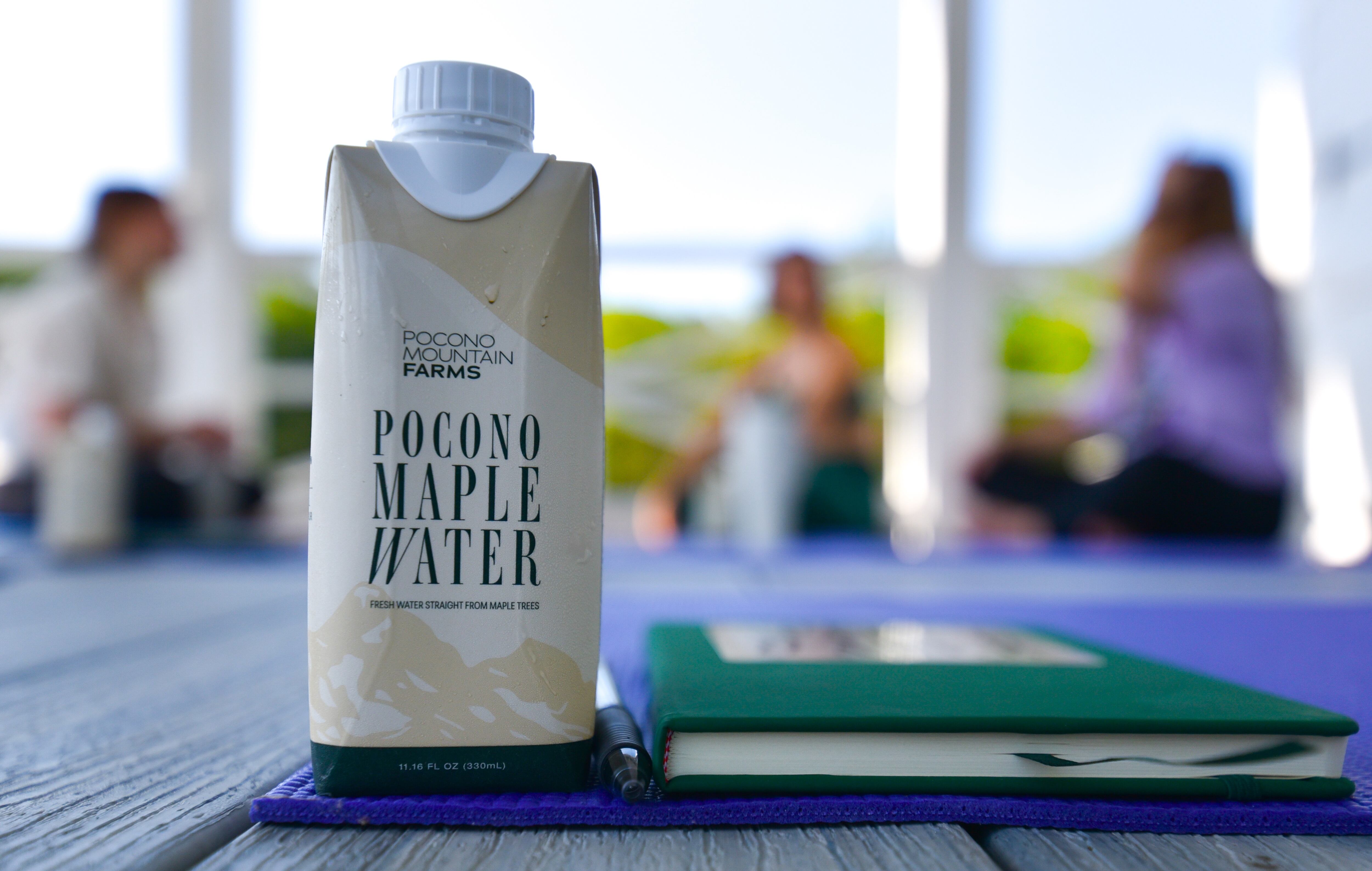Pocono Maple Water is made from nothing but maple sap sourced from over 22,000 certified organic, kosher maple trees on a 450-acre farm.
It’s a subtly sweet, naturally hydrating beverage that contains manganese, along with electrolytes and other trace nutrients (manganese is an essential mineral that supports metabolism, bone health, and antioxidant function) – and that opens up an opportunity to appeal to today’s health and wellness orientated consumer.
Before returning to Pennsylvania’s Poconos to care for a historic maple farm, founder Nicole Bentler spent years immersed in the worlds of wellness and storytelling: learning how people heal, gather, and reconnect with what nourishes them.
“I’ve always been passionate about knowing where our ingredients come from, similar to the organic or farm-to-table movements,” she told us.
“Maple water, or sap, isn’t a new concept, it’s been harvested and consumed for centuries, particularly in North America. We were inspired by that rich history and wanted to reintroduce it with a modern lens: celebrating tradition while promoting transparency, sustainability, and a deeper connection to the land.
“At our farm, we’re not just bottling water, we’re offering people a way to reconnect with nature and understand the true source of what they’re drinking.”
What does maple water taste like?
“It’s clean and refreshing, with just a whisper of natural sweetness,” explained Bentler. “People often expect something like syrup, but it’s actually much closer to cold spring water—smooth, soft, and subtle. What’s really special is that the taste can vary slightly each year depending on the trees and the weather, making every harvest a reflection of that particular spring.”
But here’s the catch. Maple water is only available for a few weeks every year. As the ground thaws and temperatures shift, sap starts to rise from the maple trees in Pennsylvania’s Pocono Mountains.
“Maple water is only available for a few short weeks each spring, when the trees wake up and the sap begins to flow,” explained Bentler. ”We work entirely within that natural rhythm. During that time, we harvest and gently preserve the sap so it stays shelf-stable for up to a year, all without altering what’s inside.
“Because our source is so limited and seasonal, we produce a set quantity each year. Much of that goes to subscribers on a first-come, first-served basis, which respects the natural limits of the harvest while creating a built-in sense of seasonality. We’re also beginning to expand into retail with partners who understand the value of small-batch, place-based products.
“Beyond that, our farm serves as an educational hub. We’re inviting people to ask: What’s in your water? Where does it come from? Who’s behind it, and how is it produced? These are important questions, and we’re proud to be part of a more conscious conversation about hydration.”

While maple water has been around for centuries, for Pocono Maple Water it’s the story and sourcing that is now making it resonate with today’s consumers.
“Consumers are increasingly looking for products with authentic origins, minimal processing, and a connection to nature,” said Bentler. ”Maple water checks all those boxes: it’s harvested during a short window in early spring, with no additives or flavoring, just pure sap, straight from the tree.
“What attracts people is that this isn’t a lab-created functional drink. It’s a seasonal, living product, a reflection of time, place, and climate. That sense of natural scarcity and farm-to-bottle transparency builds both trust and emotional connection. People drink it and can feel where it came from.
“This authenticity is powerful. In an era of wellness trends and greenwashing, maple water offers something rare: a product that’s truly as pure and simple as it claims to be.”
Pocono Maple Water retails at $42 for a 12-pack or $84 for a 24-pack in the US Northeast in cafés, wellness spaces, boutique hotels, and natural grocers.

